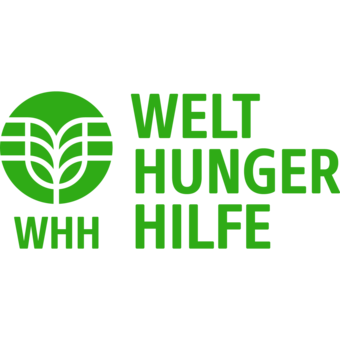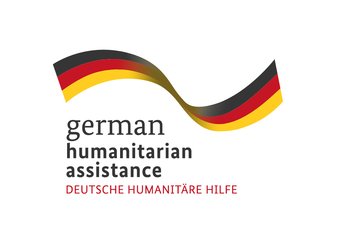Categories
Development of a forecast-based action mechanism addressing drought-induced food insecurity in Zimbabwe
Since the beginning of 2020, Welthungerhilfe has been using its extensive expertise in forecast-based action (FbA) to replicate its FbA approach, already piloted in Madagascar, in Zimbabwe. Together with our partners, Welthungerhilfe aims to develop and implement regionally specific, pre-financed and trigger-based Early Action Protocols.
The project’s goal is to further push the paradigm shift towards an anticipative humanitarian system and develop a comprehensive FbA mechanism open for collaboration with various other anticipative actors. The project intends to foster a vivid cooperation and collaboration with governmental stakeholders for the approach to be institutionalized sustainably.
The Early Action Protocols to be created will reduce the risks to the food security of vulnerable communities, prevent negative coping strategies and minimize the loss and damage to drought-affected households.
Key facts
Start/end date
March 2020-December 2022
Hazards covered
Drought
Regions covered
EAP-covered regions to be identified
Early action sectors
Food security
Anticipatory action protocols/plans in place
In process
Key actors/implementing partners
Welthungerhilfe; German Federal Foreign Office (donor); Start Network
Photo: Stefanie Glinski / Welthungerhilfe
Anticipation in practice: project description
FbA programme at Welthungerhilfe
Welthungerhilfe started its first pilot project in forecast-based action (previously forecast-based financing) in 2017, addressing drought risk in Madagascar. Its objective was to develop a drought model and EAPs for three sub-regions of Madagascar. The processes, evidence and learning from these efforts have formed the basis for adoption in three further countries: Kenya, Madagascar and Zimbabwe.
The aim of the current project is to develop FbA mechanisms for food security in the event of drought in these three countries. More details on these projects can also be found under the respective Anticipation Hub project pages, found under the respective country profiles: Madagascar and Kenya.
Reducing the risk of drought-induced food insecurity
The FbA mechanism reduces the impacts of a predicted drought on food security of most vulnerable communities. Based on in-depth analyses, the project team plans to develop several local EAPs that will be connected to a trigger-based financing mechanism. The drought model that triggers the EAPs will be based on various climatological and humanitarian forecast data, and informed by comprehensive risk and vulnerability analyses. On the basis of historical analyses, the model will address drought events with an average return-period of 10 years.
In cooperation with the Start Network and other NGOs, several localized EAPs are going to be developed using impact-based forecasting models and addressing specific coping strategies to minimize drought-induced impacts and losses among affected households. EAPs include the roles and responsibilities of all involved stakeholders, as well as particular early actions which are specifically tailored to the regional context, timing and severity of a drought.
The EAPs will be rolled out as soon as the drought forecasting model has been triggered. At this point, a range of (still to be defined) early actions - for such as early cash, in-kind assistance and awareness-raising activities - will be conducted, depending on the timing of the trigger and the reached threshold.
FbA in an NGO environment
Our vision is to strengthen FbA and anticipatory humanitarian initiatives among NGOs. To achieve this, and ensure long-term sustainability, ownership of the local EAPs will be shared with other stakeholders.
With this ambition in mind, we have partnered with the Start Network, which has 50+ NGO members. Start Network member organizations in Zimbabwe, and in the other two programme countries (Kenya and Madagascar), can become so-called 'EAP custodians' and, as such, will collaborate in the development and implementation of the EAPs. In addition, this formalized cooperation will ensure local institutionalization, communal involvement and high accountability towards local stakeholders and beneficiaries. The guidance and facilitation of this process will be done by Welthungerhilfe.
The FbA mechanism will be developed, specifically adapted and set up for an international and national NGO environment. To ensure effective implementation, the system is being developed in cooperation with the Start Network, Start Network member organizations, universities, local partners, national government institutions, local authorities and target group communities.
The Start Network will play a pivotal role as a technical advisor but also by providing the financial mechanism behind the FbA mechanism. It will provide continuous technical guidance on the model development and quality assurance on the EAPs developed by Welthungerhilfe and other Start Network member organizations in country. When triggers are met, the Start Network will fund the EAP's implementation. Putting the money behind these EAPs is one of the reasons behind the Start Network’s quality assurance role in their development. This funding support is part of a wider NGO-specific financing facility in preparation, which will enable donor money to be deployed at scale in timely, predictable and efficient ways to frontline NGOs like Welthungerhilfe.
Lessons learnt
Scheduling longer lead-in time (especially in new countries of implementation) to ensure proper introduction to concepts, capacity building and training, as well as the ‘buy-in’ of various stakeholders
Scheduling more time for coordination, scoping and understanding the lay of the land before programming started
Fostering of lively exchange and coordination between Welthungerhilfe internally but also with other stakeholders (such as Start Network and members, national government institutions and local authorities, but also between different initiatives, such as the Welthungerhilfe FbA Programme and Start Network Pakistan DRF initiative)
Scheduling for more time in order to build a robust scientific model (or even consider to outsource)
We want to give also other NGOs the chance in taking an active role in the setting up of an FbA project, gaining familiarity with FbA systems, and if the system triggers be in a position to receive funds to carry out activities within drought affected provinces in Zimbabwe.
Welthungerhilfe, together with other organisations, has set up the first national FbF working group in Zimbabwe and is already participating in regular working group meetings and joint assessments. Specifically, joint scoping missions and the coordinated development of trigger mechanisms enable the shared use of available knowledge and a nationally uniform system, and prevent duplication.
Find more information on Welthungerhilfe's approach for a localized EAP development in the Step-by-Step Guidance
Further information
- A streamlined NGO approach to drought-induced food insecurity in Zimbabwe
- Welthungerhilfe Zimbabwe: Drought Hazard Risk and Humanitarian Impact Analysis and Inventorisation of Forecast Models - Final Report
- Forecast-based Action: Addressing Drought-induced Food Insecurity in Madagascar, Zimbabwe and Kenya
- Video: Forecast-based action - Welthungerhilfe in humanitarian aid
- Welthungerhilfe FbA MEAL: Implementation MEAL Early Action
Contact
FbA country team, Zimbabwe
Regina Feindt
Head of programmes, Welthungerhilfe Country Office Zimbabwe
Regina.Feindt@welthungerhilfe.de
Anastancia Mangisi
Project coordinator - FbA programme, Welthungerhilfe Country Office Zimbabwe
ANASTANCIA.MANGISI@welthungerhilfe.de
Vincent Chiunya
Scientific coordinator - FbA programme, Welthungerhilfe Country Office Zimbabwe
Vincent.Chiunya@welthungerhilfe.de
Global FbA programme - overview
Dominik Semet
Programme coordinator for forecast-based action programme
Dominik.Semet@welthungerhilfe.de
Implementing organization

Welthungerhilfe
Learn morePartner

START Network
Learn moreSupported by:


